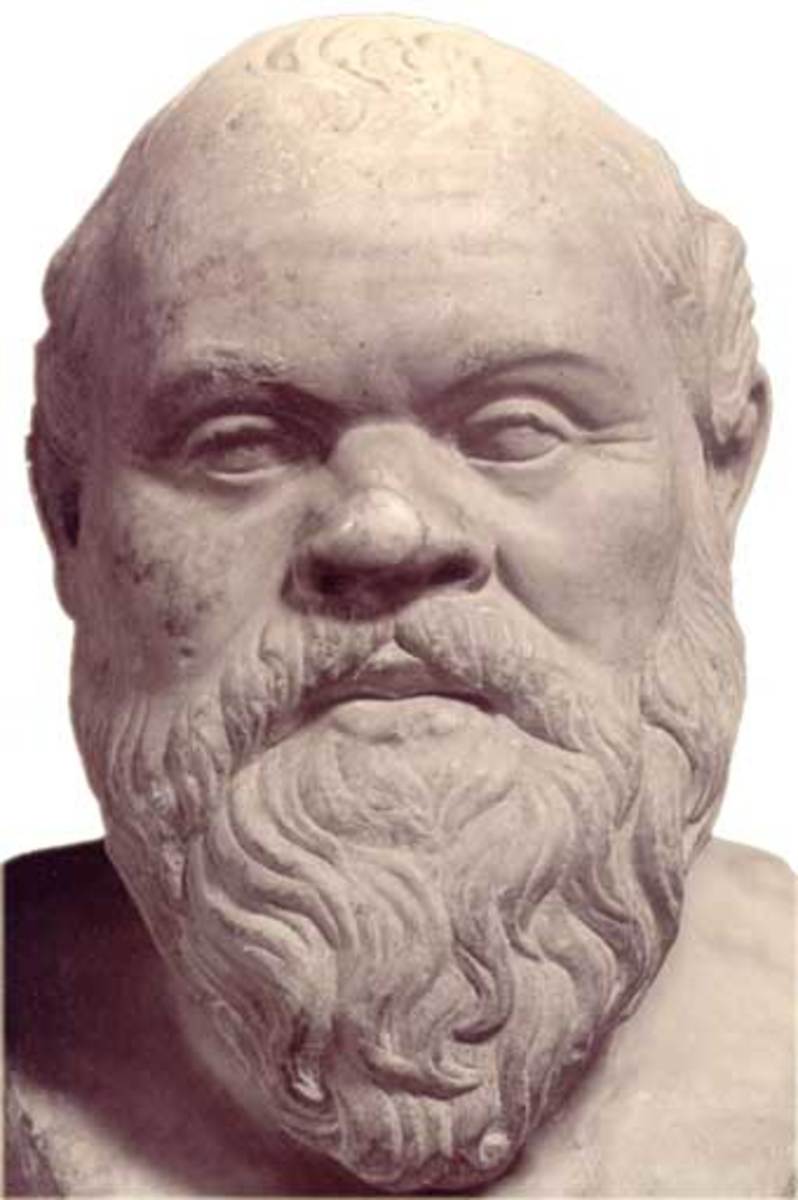In many circles of our Byzantine tradition, Plato and Socrates are viewed in much the same light as the Old Testament Prophets; they strove to see the truth, and recorded the bit that they saw, leaving a framework for later Christians to build upon.
In the dialogue, Phaedo, recording the final conversation and death of Socrates, Plato relates his teacher's reasons for not fearing death, reasons which resonate with Christians.
Make no mistake, though. Our bodies are part of who we are. Yes, there are ancient heresies that taught that the body, because it doesn't survive death, is just a shell. But God created man as body and soul. Think about the Resurrection of the Body; we will have a body, albeit a glorified one, eternally.
No, the Christian understanding is not that the body is an evil thing that will be discarded. Rather, it is a part of us that must be controlled by the mind, by the soul. Only then, can we be free to begin loving God as completely as we ought.
In the dialogue, Phaedo, recording the final conversation and death of Socrates, Plato relates his teacher's reasons for not fearing death, reasons which resonate with Christians.
.... must not true philosophers make a reflection, of which they will speak to one another in such words as these: We have found, they will say, a path of speculation which seems to bring us and the argument to the conclusion that while we are in the body, and while the soul is mingled with this mass of evil, our desire will not be satisfied, and our desire is of the truth. For the body is a source of endless trouble to us by reason of the mere requirement of food; and also is liable to diseases which overtake and impede us in the search after truth: and by filling us so full of loves, and lusts, and fears, and fancies, and idols, and every sort of folly, prevents our ever having, as people say, so much as a thought. For whence come wars, and fightings, and factions? whence but from the body and the lusts of the body? For wars are occasioned by the love of money, and money has to be acquired for the sake and in the service of the body; and in consequence of all these things the time which ought to be given to philosophy is lost. Moreover, if there is time and an inclination toward philosophy, yet the body introduces a turmoil and confusion and fear into the course of speculation, and hinders us from seeing the truth: and all experience shows that if we would have pure knowledge of anything we must be quit of the body, and the soul in herself must behold all things in themselves: then I suppose that we shall attain that which we desire, and of which we say that we are lovers, and that is wisdom, not while we live, but after death, as the argument shows; for if while in company with the body the soul cannot have pure knowledge, one of two things seems to follow-either knowledge is not to be attained at all, or, if at all, after death. For then, and not till then, the soul will be in herself alone and without the body. In this present life, I reckon that we make the nearest approach to knowledge when we have the least possible concern or interest in the body, and are not saturated with the bodily nature, but remain pure until the hour when God himself is pleased to release us. And then the foolishness of the body will be cleared away and we shall be pure and hold converse with other pure souls, and know of ourselves the clear light everywhere; and this is surely the light of truth. For no impure thing is allowed to approach the pure. These are the sort of words, Simmias, which the true lovers of wisdom cannot help saying to one another, and thinking. You will agree with me in that?
The Christian views this life in a similar fashion. The pleasures of this life are transitory, and seeking them impedes our life of prayer, of contemplation. Yes, we must love and assist our brother - is not the Second Great Commandment to love our neighbor as ourself? But what is the First Great Commandment? To love God with all our heart, soul, and mind. The body can be an impediment to this, as Socrates shows us.Make no mistake, though. Our bodies are part of who we are. Yes, there are ancient heresies that taught that the body, because it doesn't survive death, is just a shell. But God created man as body and soul. Think about the Resurrection of the Body; we will have a body, albeit a glorified one, eternally.
No, the Christian understanding is not that the body is an evil thing that will be discarded. Rather, it is a part of us that must be controlled by the mind, by the soul. Only then, can we be free to begin loving God as completely as we ought.

Comments
Post a Comment